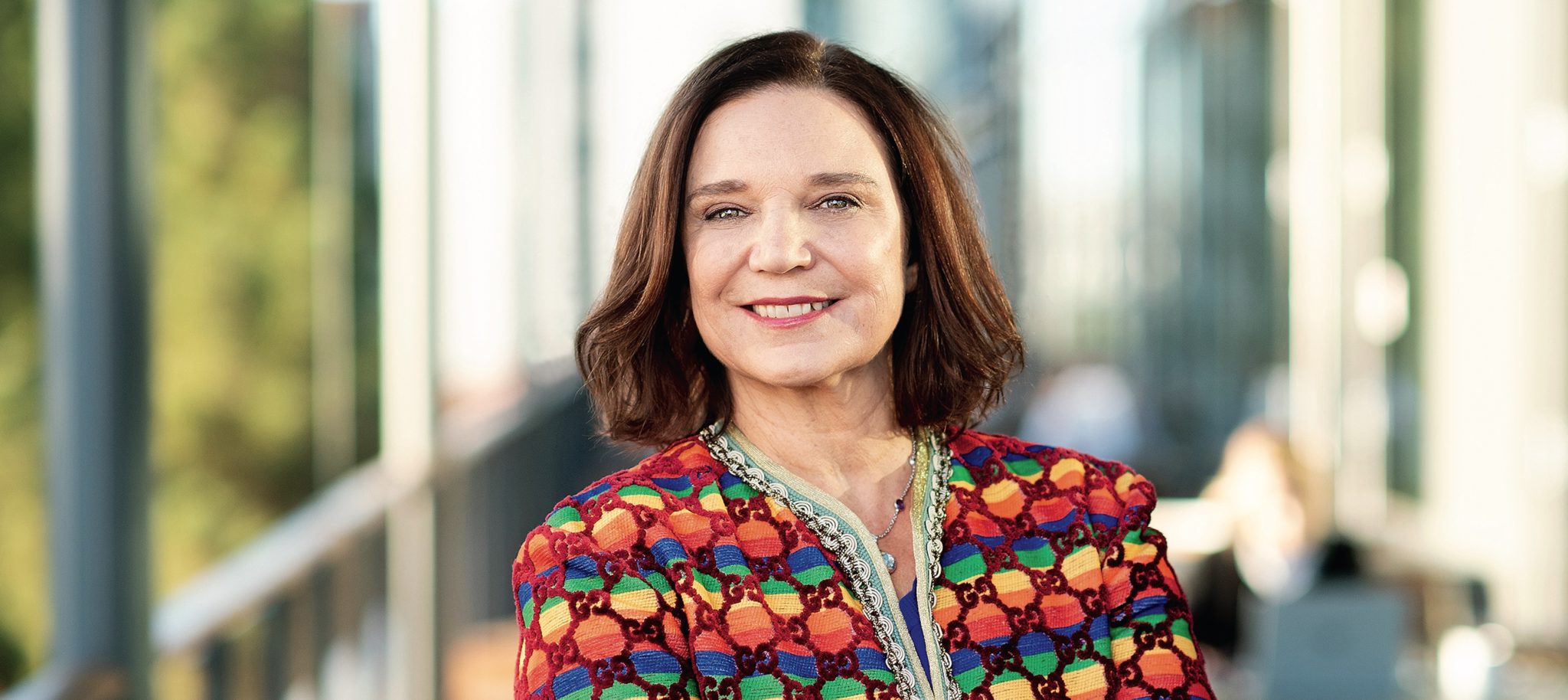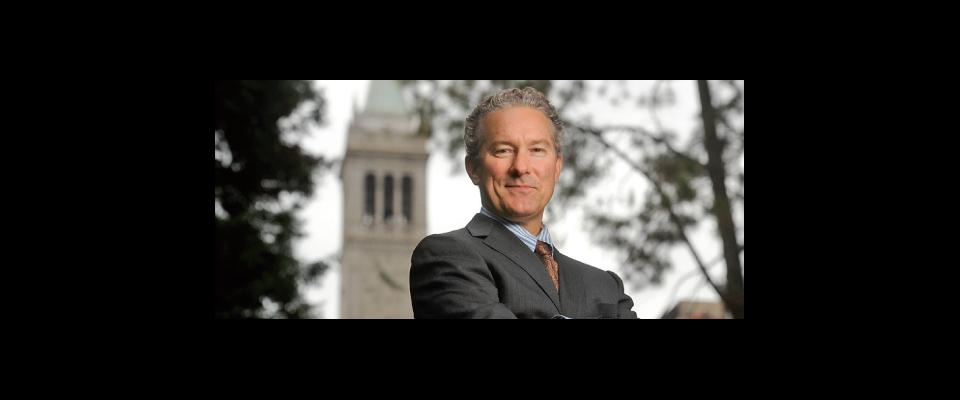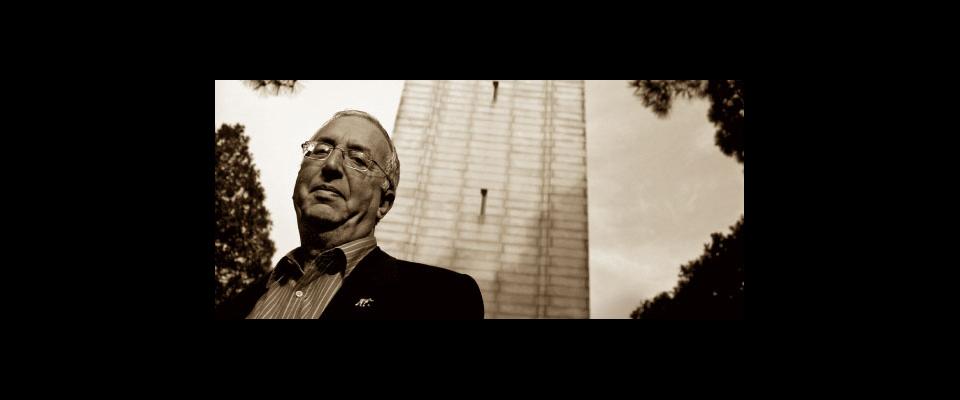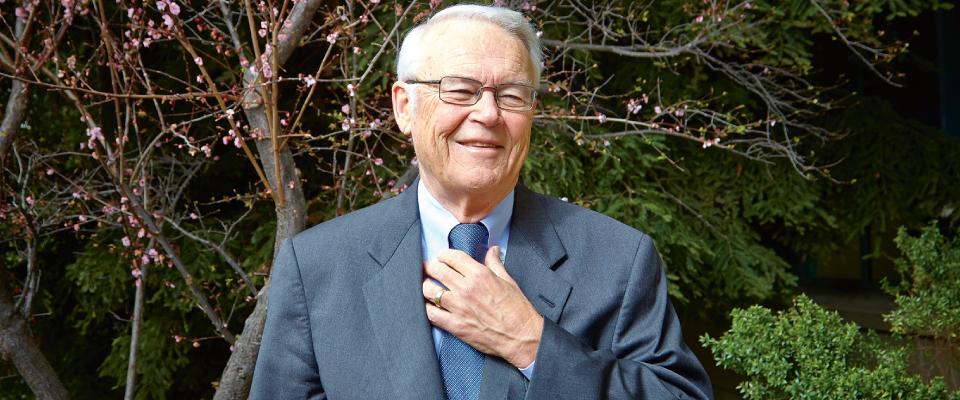Haas prides itself on its four defining leadership principles: question the status quo; confidence without attitude; students always; and beyond yourself. How do these help set the school apart?
No other business school set out the way Haas did, under former dean Rich Lyons [’82], to consciously define and shape a strong culture for competitive advantage, to bring to Haas the students we wanted: students who care about the world beyond themselves. Three out of four students say the principles were a strong reason for choosing Haas. The principles are who we are; they are the wind in our sails helping us aim straight for our goal of creating a more innovative, inclusive, and sustainable world.
A professor at Wharton recently asked her students what they thought the average American worker earns in a year and was surprised when 1 in 4 thought it was over six figures. One thought it was $800,000! The real figure is closer to $50,000. Do you think Haas students would have done better?
I saw the story and thought how cautionary it was: how easily even the brightest can become trapped in their own bubble. I can say with certainty that Haas students would have done better with the answer. Haas has the traditional strengths of a business school like Wharton in finance and management, but because of our culture—because of who we are—we are leading in new important areas that will be so critical to success in the future: entrepreneurship and innovation, inclusion and sustainability. To lead in the future, you must be able to confront the realities of climate change and our environment, the widening gap between rich and poor, and racial injustice. You need to understand the struggles people face every day.
You’ve written extensively on the issue of inequality. What role do you think business plays in exacerbating or addressing the problem? How does Haas help?
Business is the engine of growth, but without equality, without inclusion, growth runs into trouble. It starts to sputter. It is not sustainable. At Haas, our mission is to train the next generation of leaders who have the skills, the will, and the vision to define the future through the lens of equality. They will look at spreadsheets differently; they will ask who has a seat at the table; they will want to know the impact of the environment they are building. They will be the force to build a more equitable economy that works for everyone.
Certain degree programs at Haas combine business with other fields, such as technology and the life sciences. Why do you think it’s important that business students are grounded in other disciplines?
Business doesn’t happen in a vacuum. Leadership on sustainability, for example, is not just for business leaders who work directly on climate issues or in climate technology. Accountants need to plan for the effects of climate change on valuation and outcomes; real estate developers and financiers will need to consider climate changes in forecasting risk; so will consultants and investment bankers. And leaders in the life sciences will need to partner with business. The world is fast coming to a boiling point. Sustainability is mission critical.
As you’ve said above, Haas believes progress is made through innovation, sustainability, and inclusion. Judged by these measures, how is American business in general doing?
We typically think of governments leading and business following. But we’re seeing the opposite take place now. Business is out in front, responding to consumers, responding to scarcity, doing the math on climate. Ahead of the U.N. climate change summit in Glasgow last fall, more than 100 companies, across 16 countries and 25 industries, pledged to achieve net-zero carbon emissions 10 years ahead of the Paris Agreement 2050 goal. It is business that is mainstreaming sustainability because it makes business sense.





















